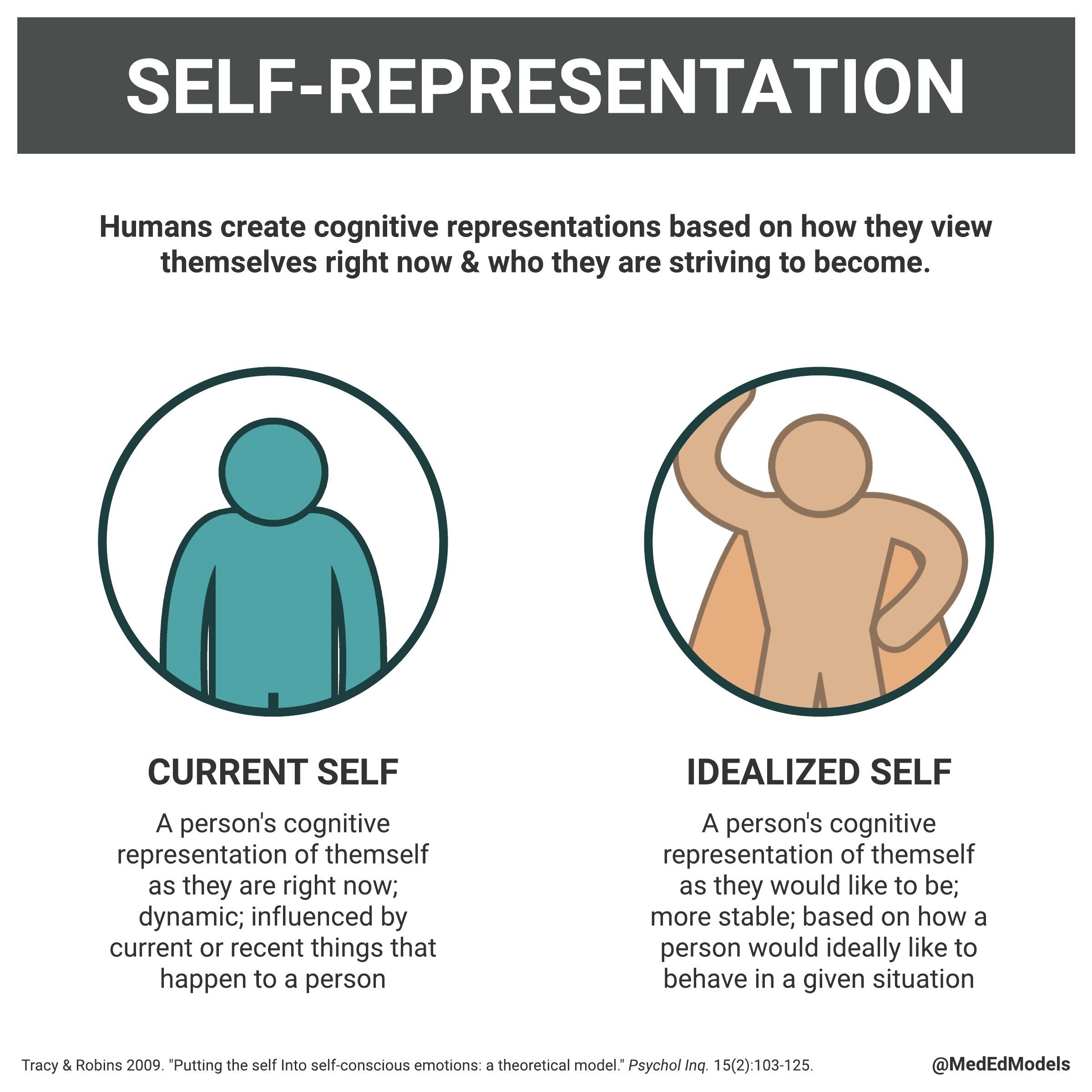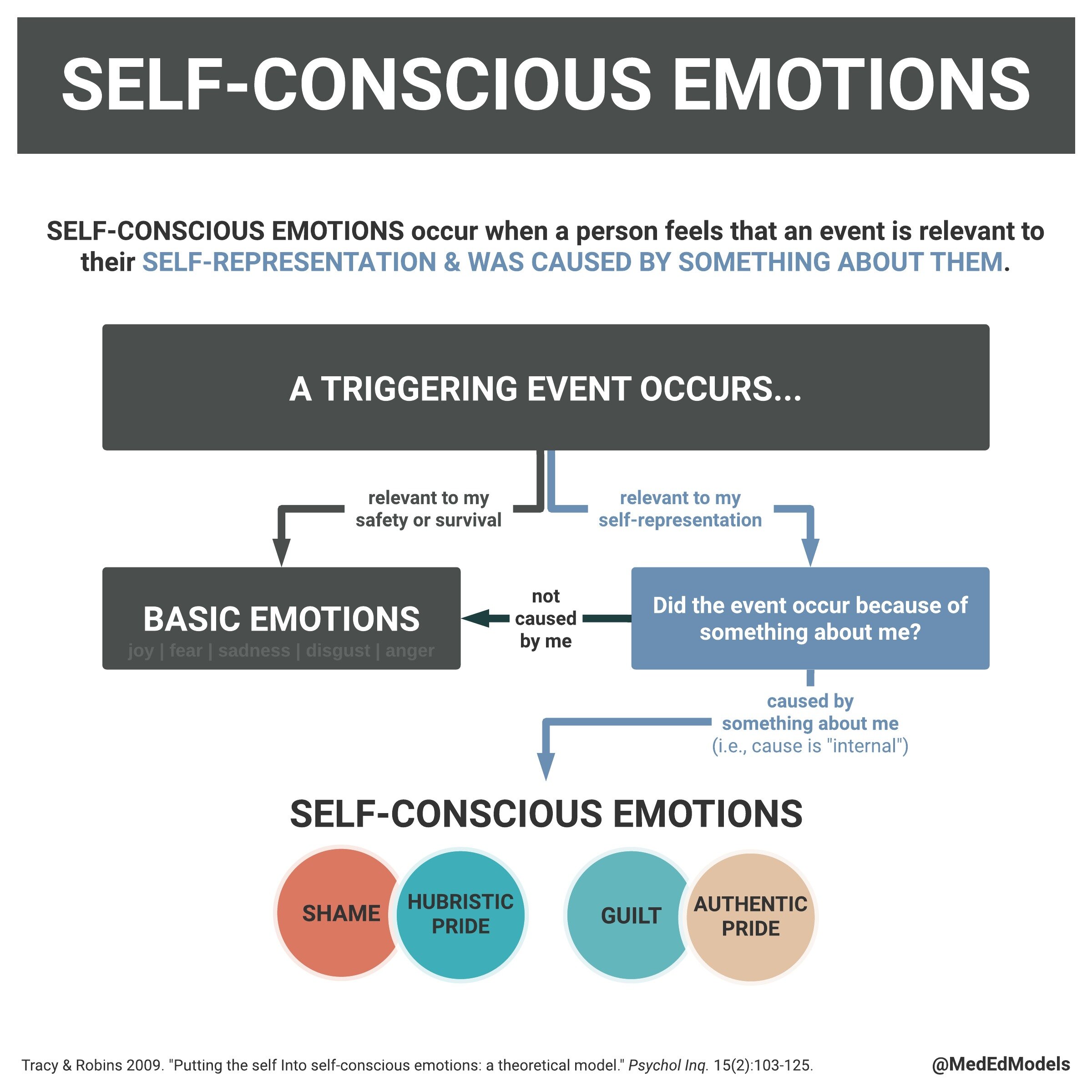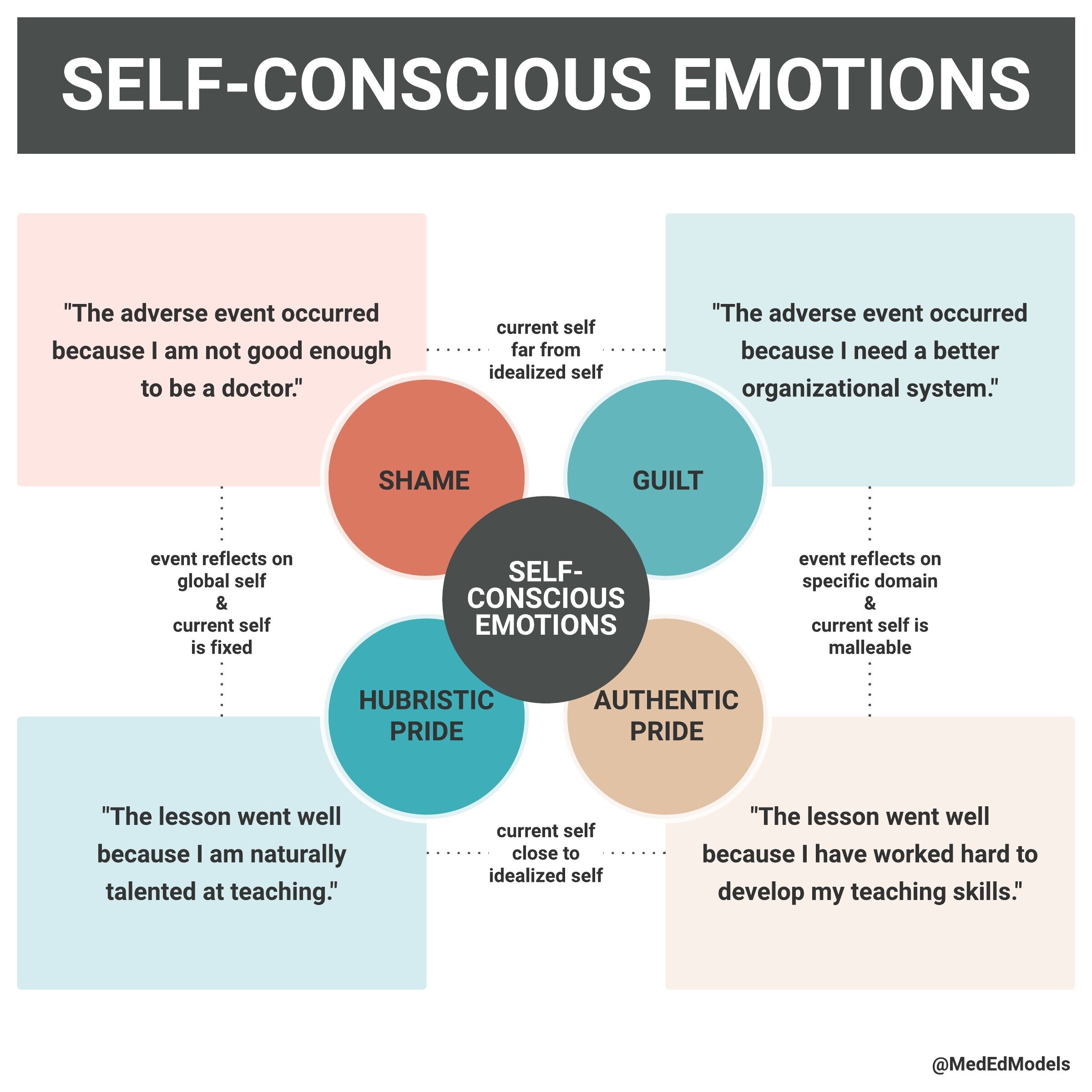Self-Conscious Emotions
This MedEd Model covers the Self-Conscious Emotions with assistance from @WillBynumMD
This MedEd Model is on the self-conscious emotions, such as shame & guilt.
We’ll focus on describing the self-conscious emotions and relating them to feedback in #MedEd.
Let’s start by reviewing the concept of self-representation and its relationship to self-conscious emotions.
To understand the self-conscious emotions, we need to understand two key components of self-representation:
The current self
The idealized self
Events can trigger emotions.
Some events lead to basic emotions (e.g., joy, fear, or sadness) while others lead to self-conscious emotions, such as shame, gult, hubristic pride, and authentic pride.
What exactly causes each self-conscious emotion to arise?
When an event brings our current self and idealized self closer together, we experience pride.
However, not all pride is the same. Here, we can see some key differences between two types of pride:
Hubristic pride
Authentic pride
When an event brings our current self and idealized self further apart, we experience shame or guilt.
We know it can feel dense to think about how these all fit together, so let’s compare these emotions based on:
Whether an event is seen as a reflection of a fixed or malleable self
Whether an event brings our current and idealized self closer together or further apart
Here’s some more information on shame, including how it impacts our psychological state and behaviors.
And here’s some more information on guilt.
Self-conscious emotions may be associated with other important aspects of learning and growth, including mindset.
Here we can see how emerging evidence is potentially linking different self-conscious emotions with a fixed mindset or a growth mindset.
Furthermore, self-conscious emotions can affect feedback receptivity, which may influence mindset.
Here are some examples of how different feedback statements might trigger different self-conscious emotions.
How does this all relate to teaching strategies in #MedEd?
Consider this prompt, which invites reflection on your own experiences with shame.
We’re very lucky for this #MEM to have support and a comment from co-designer
Thank you for participating, Will!
Here’s the take homes.
Let’s set you up To Learn More (#2LM).
Check out the work of these incredible scholars:
Particularly in:














